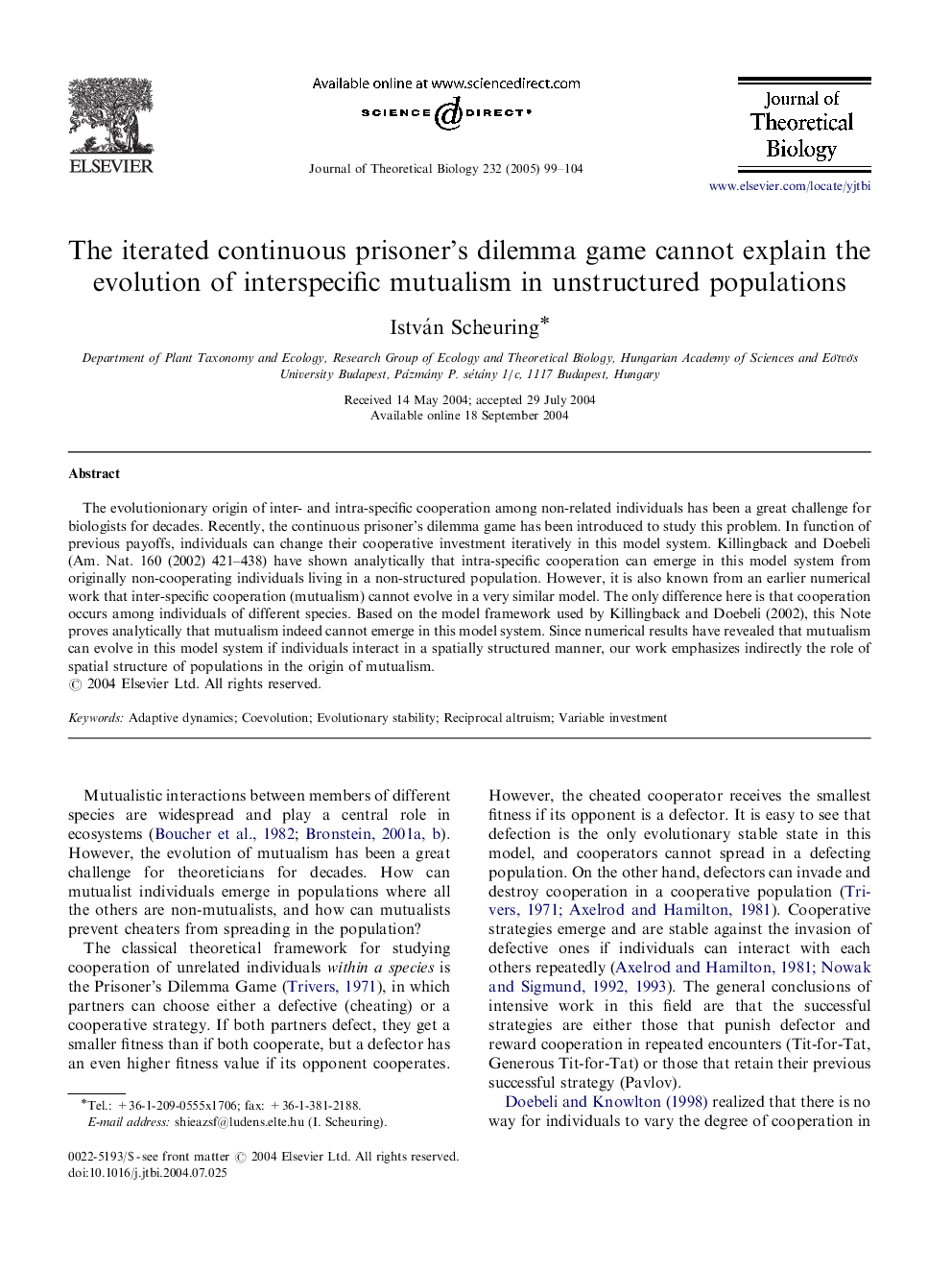| Article ID | Journal | Published Year | Pages | File Type |
|---|---|---|---|---|
| 9469898 | Journal of Theoretical Biology | 2005 | 6 Pages |
Abstract
The evolutionionary origin of inter- and intra-specific cooperation among non-related individuals has been a great challenge for biologists for decades. Recently, the continuous prisoner's dilemma game has been introduced to study this problem. In function of previous payoffs, individuals can change their cooperative investment iteratively in this model system. Killingback and Doebeli (Am. Nat. 160 (2002) 421-438) have shown analytically that intra-specific cooperation can emerge in this model system from originally non-cooperating individuals living in a non-structured population. However, it is also known from an earlier numerical work that inter-specific cooperation (mutualism) cannot evolve in a very similar model. The only difference here is that cooperation occurs among individuals of different species. Based on the model framework used by Killingback and Doebeli (2002), this Note proves analytically that mutualism indeed cannot emerge in this model system. Since numerical results have revealed that mutualism can evolve in this model system if individuals interact in a spatially structured manner, our work emphasizes indirectly the role of spatial structure of populations in the origin of mutualism.
Related Topics
Life Sciences
Agricultural and Biological Sciences
Agricultural and Biological Sciences (General)
Authors
István Scheuring,
